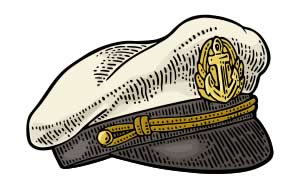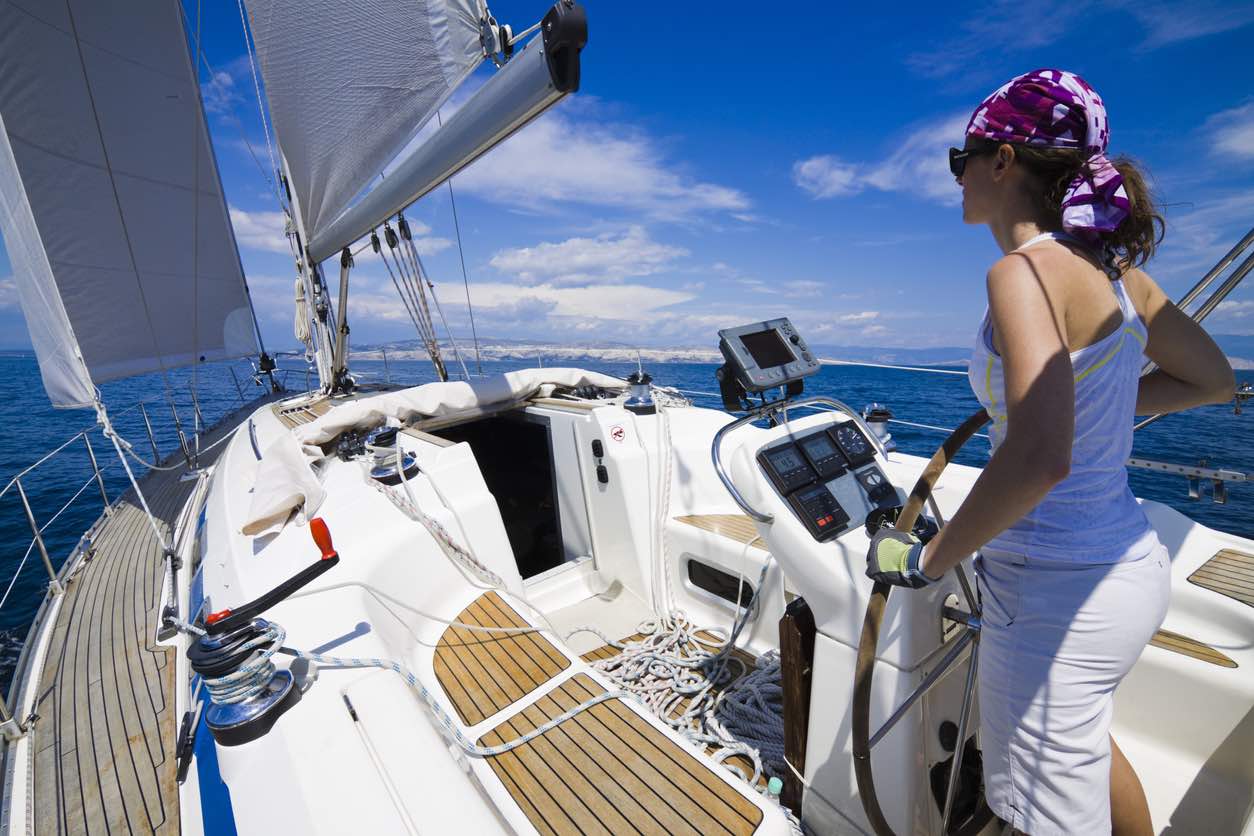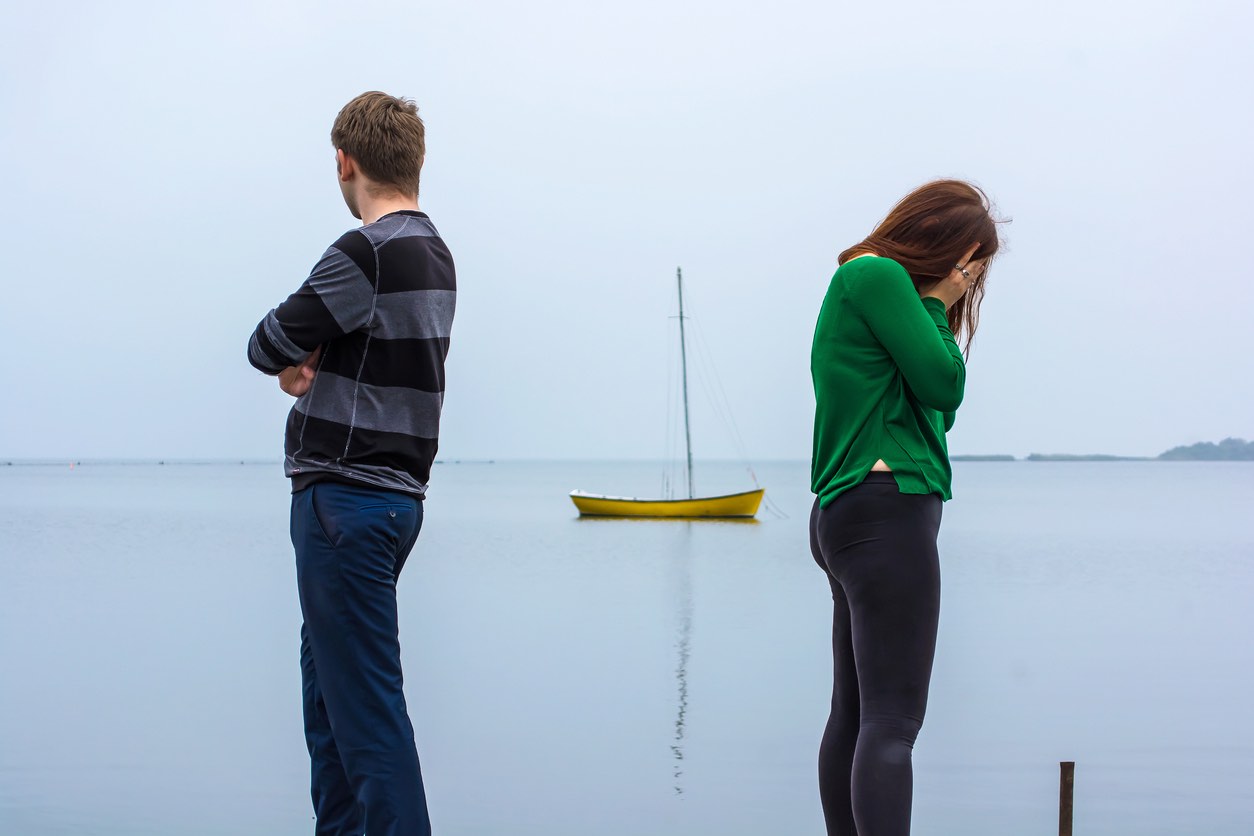It's Tuesday April 23, 2024
News From The Village Updated Almost Daily

December 2019
The best docking occurs when women drive. Yes, there it is. I’ve said it.The human with the least amount of upper body strength should drive the boat. The human with the most upper body strength should work the lines. But, sadly, this rarely occurs.
This vessel has the best helmsman.Consequently, docking frequently becomes the displayed test of a relationship. The docking test is particularly apparent when conditions are challenging. Mix in some current or a bunch of crosswind and the state of your relationship is immediately displayed to onlookers. Sounds harsh? Yes, it is harsh; but true. Here’s what I mean.
• Hello Captain, male, helmsman, did you allow your line-handling wife enough time to hang the fenders and prepare the lines? Or, are you rushing into the slip? Is she jumping through hoops trying desperately to get everything done in preparation for docking? Onlookers notice immediately, the frantic commotion on the foredeck. The commotion translates to, “The Captain didn’t care enough to let his crew catch up to the boat.” So, don’t rush. Make the marina dock hand wait. Frantic haste fuels mistakes. The crew needs time to visualize the plan and think about their required actions. Start early.
• What is the plan? Is your wife on the wrong side of the boat? Is she aft rather than forward? Again, this mis-positioning leads to commotion. Are you docking bow or stern in? Are you a starboard or port tie? Are the fenders high, medium or on the waterline for floating docks? Translated, “The Captain didn’t have or relay the plan to the crew.” There must a communicated and understood plan.
• Is there a lot of yelling and pointing? Translated, “They haven’t practiced a docking routine. So, their docking isn’t routine.” In order for docking to become routine, there must be a practiced routine. “The Captain doesn’t care enough to practice.” The wife line handler bears the brunt. The wonderful day on the water ends poorly. And, what ends bad is usually remembered as bad.
• Is there fear of judgment from onlookers? Does the Captain anger easily? During docking, the most likely cause of anger is the fear of being judged. The mind uses anger as its most reliable defense mechanism. The bruised ego of the Captain transfers the blame onto the crew via anger. An angry Captain is an incompetent one. Your Captain is responsible for everything that happens or fails to happen on your boat. Captains, if your crew screws it up, it’s still on you. Settle down and own all the mistakes. Resolve your proficiency and communication issues.
• Is the male Captain helmsman deserting the helm to help with the lines? Translated; they haven’t practiced enough so he must intervene. The wife line-handler, now judged incompetent, needs help. Yet again, she experiences a loss of confidence. The husband displays his lack of confidence in her ability. Everyone feels bad and the boat drifts amuck in the slip with nobody driving.
• Are there smiles? Team work makes the dream work. In order get the positive boating experience you deserve, everyone must understand their role on the team. The helmsperson is charge of the docking evolution. Males; you cannot direct the docking while working the lines. If you are going to work the lines (as you should), delegate the docking responsibility to the helmsperson. Line handlers take direction from the helmsperson. With that said, line handlers, please be proactive. Passive aggressive attitudes on the foredeck are prohibited. Don’t be yourself. Be someone nicer. Have a plan built on consensus. Try hard. Be kind and forgiving to yourselves.
Don’t be yourself. Be someone nicer.• On our boat, you can be right or you can be happy; choose happy. Onlookers have watched your docking and know what went wrong. Mostly, because they have made the same mistakes themselves. If it was ugly, own it outright. Don’t shift the blame in order to be right. Blame creates wide and deep negativity that is difficult to overcome. Choose happy. Some docking is just ugly. Wind is 90 degrees off. Current is running. Sometimes docking feels like damage control. Get the boat tied fast. Then, get happy. Don’t pass blame around the boat. The Captain is ultimately responsible.
• Confidence is an important ingredient for success. The helmsperson, who is responsible for directing the docking, cannot be tentative. Drive the boat like it’s a rental. Yes, rental. Drive the boat between the pilings, get the boat stopped then get the lines. Plan on succeeding. Speaking of plans;
• Is the plan good or bad? A poor plan well executed is better than a “no plan”. The compensation for lack of planning is execution. Are you proficient enough to dock without a plan? Unlikely.
Read previous Captain’s Blogs on coming and going ( Getting Underway and Returning To Your Slip ). Dedicate some time for practice so you have the experience you deserve.
Boaters never rise to the occasion. They sink to the level of their practice.
Enjoy.
Fair Winds,
Captain John Rahm
 Captain's Blog on TownDock.net is all about making your time on the water enjoyable. Captain John Rahm teaches sailing and boat handling at Third Wave Sailing. Captain's Blog on TownDock.net is all about making your time on the water enjoyable. Captain John Rahm teaches sailing and boat handling at Third Wave Sailing. |

